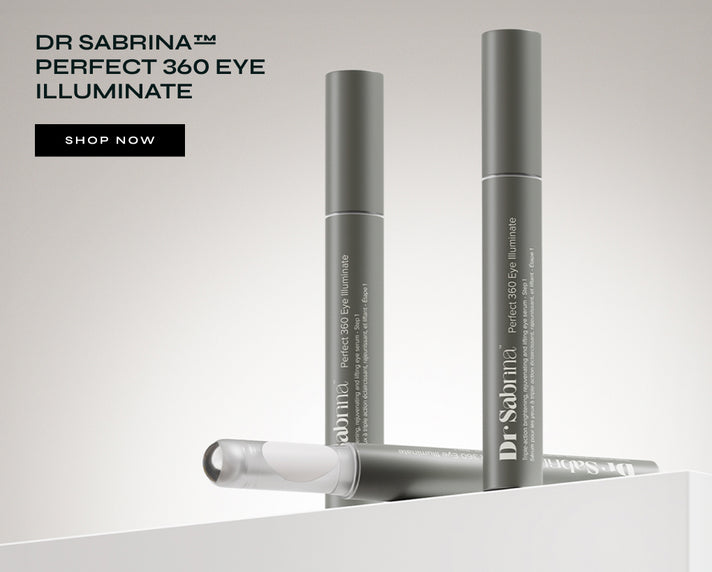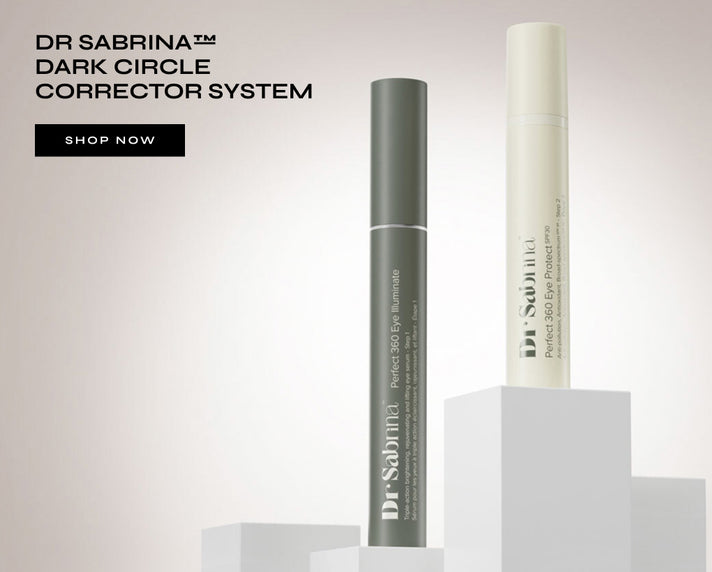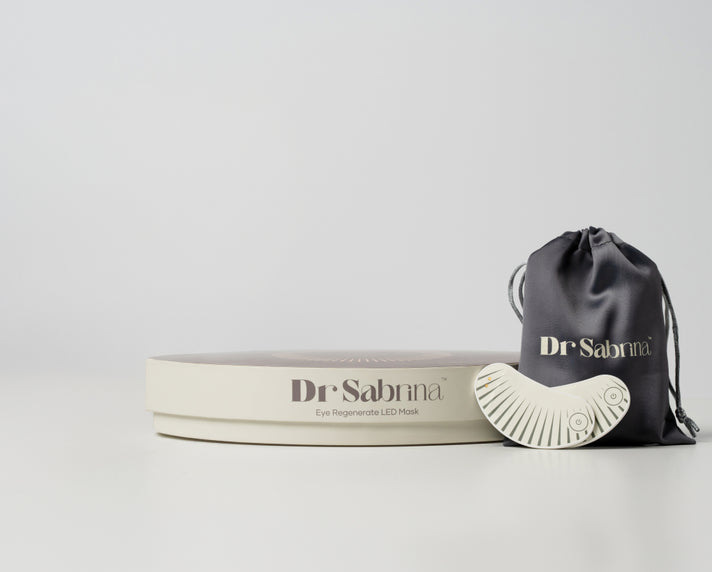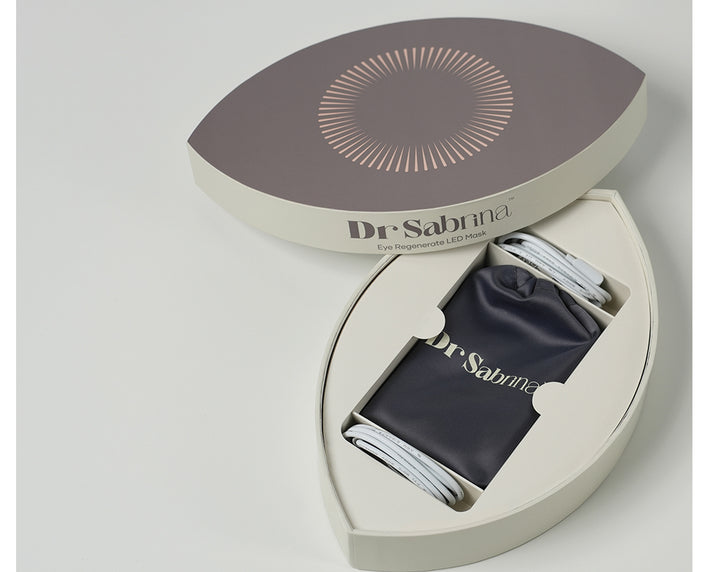
Ever feel like your skincare products are speaking a different language? You are not alone, as terms like "retinol" and "retinal" start popping up on labels everywhere. They sound so similar that it is hard to distinguish one from the other, but the difference between retinol and retinal could greatly affect how your skin looks and feels.
Knowing retinal vs retinol can help you select the right active ingredient for lasting effects if you have fine lines, dullness or breakouts. Let's clear the confusion and determine how the two skin superheroes differ.
What is the Difference Between Retinol and Retinal?
Let’s get down to the basics. Both retinol and retinal are forms of vitamin A, which is known as an anti-ageing and anti-acne powerhouse ingredient because it reduces fine lines and wrinkles and is used to treat acne. However, the differences between retinol and retinal are based on how your skin converts them to retinoic acid, which is the active ingredient that skin cells use.
- Retinol has two conversion stages: retinol → retinal → retinoic acid.
-
Retinal has one conversion stage, retinal → retinoic acid.
This is an important distinction, as retinal is less dilute and more effective than retinol. Essentially, less diluted retinal will deliver faster results than more diluted and ineffective retinol.
Retinal vs Retinol: Strength and Efficacy
On to the most Googled question: Is retinal stronger than retinol? Yes! Again, because retinal is only one step away from being retinoic acid, it is stronger and more efficacious than retinol.
Retinal is, therefore, an excellent option for someone looking for visible anti-ageing effects or improved acne clearance in a shorter period. The most powerful option has an inherent risk of irritation for sensitive skin.
If you’re wondering whether to choose retinal or retinol, your skin’s sensitivity level and experience with actives will play a huge role.
Texture and Formulation: Subtle Yet Significant
The difference between retinal and retinol is evident in the product texture. Retinal is quite unstable and more expensive to formulate, which is why it is usually reserved for premium products and often packaged in airless packaging to protect its potency.
While retinol is more stable and generally available, it is the best option for those new to retinoids. Many of the Best retinol serums on the market use encapsulated retinol for a gentler, time-released application.
Benefits: What Can You Expect?
Despite the difference between retinol and retinal, they both offer an impressive range of skin benefits:
|
Benefit |
Retinol |
Retinal |
|
Reduces Fine Lines |
✅ |
✅ (Faster results) |
|
Fades Hyperpigmentation |
✅ |
✅ |
|
Boosts Collagen |
✅ |
✅ |
|
Treats Acne |
✅ |
✅ (More potent antibacterial properties) |
So if you’re debating retinal or retinol, it’s less about what’s better and more about what suits your skin needs.
Retinal and Retinol Difference in Skin Tolerance
For those with sensitive skin, retinol is generally more tolerable due to its slower absorption and less immediate activity. Retinal, while effective, might cause more flaking or dryness in the beginning stages, especially if you jump in without proper skin prep.
To avoid this, build up your tolerance gradually. Start by applying retinol twice weekly and observe how your skin reacts before increasing frequency.
And speaking of frequency, how often should you use retinol? Dermatologists typically recommend starting 2–3 nights per week and slowly progressing to nightly use over time.
Choosing Between Retinal or Retinol
Here’s a quick breakdown to help you decide:
-
Choose retinol if you're new to retinoids or have sensitive skin.
-
Go for retinal if you want faster results, and your skin can tolerate stronger actives.
Remember, the difference between retinol and retinal isn’t just academic—it matters for long-term skin health and glow.
Final Thoughts: Retinal vs Retinol Is All About Personalisation
So, what is the difference between retinol and retinal? Simply put, the efficacy, strength, and conversion speed.
While both ingredients are scientifically backed and highly effective, the best choice depends on your skin type, goals, and product preference. If you’re just beginning your retinoid journey, retinol is a trusted, accessible entry point. For those looking for clinical-level results with fewer steps, retinal is your skin’s new best friend.
Consistency is key to whichever path you choose. After all, retinoids don’t work overnight—but with the right one, you’ll wake up to smoother, clearer, and more radiant skin.
FAQs
1. What makes retinal stronger than retinol?
Retinal only needs one conversion step to become the active retinoic acid in skin, while retinol needs two. That single-step process makes retinal more potent and faster-working.
2. Can I use retinol and retinal together?
Generally, no. Since both convert into the same active compound, layering them can increase irritation without extra benefits. Choose one and build up tolerance gradually.
3. Which is better for acne, retinal or retinol?
Retinol works faster on acne due to its stronger potency and quicker action. However, retinol is a gentler and more gradual option, often better for sensitive or reactive skin.
4. Will retinol or retinal make my skin peel?
Yes, both can cause peeling, dryness, or flaking, especially during the first few weeks. The retina may cause this faster and more intensely, so start slowly and moisturise well.
5. Is retinal suitable for retinoid beginners?
If you're new to retinoids, retinol is the smoother entry point. Its slower activation reduces the risk of irritation, making it ideal for building skin tolerance before trying stronger versions like retinal.












